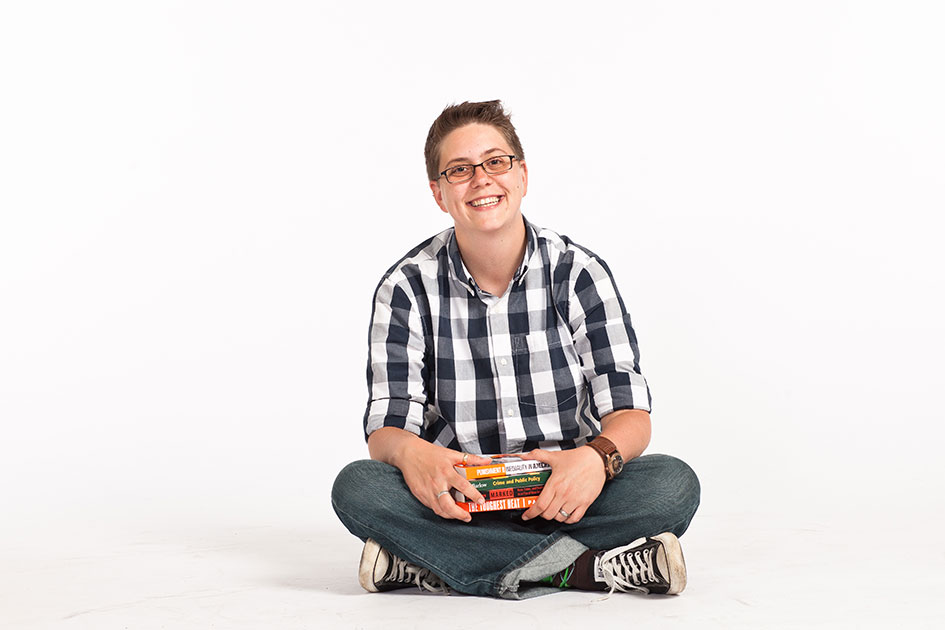Melissa Osborne
Sociology
Hometown: Roseburg, Oregon
Adviser: Prof. Alec Campbell [sociology 2010–]
Thesis: “Smoking with Felons: Building Community and Eroding Barriers in the Isolated Liminal Space of Reëntry”
What it’s about: An investigation of the barriers facing inmates who are attempting to reënter society, and a delineation of the structure and processes of a new barrier that I call liminal isolation. Born out of disconnection between criminal and mainstream community networks, liminal isolation bolsters the effects of traditional barriers, and contributes to recidivism by placing a strain on the individual.
What it’s really about: Reentry from prison to society is more complicated than previously understood.
Who I was when I got to Reed: It’s been a weird path. I dropped out of school after eighth grade. In my mid-20s, as the mother of two, I returned to community college. I found out that I’m really good at school, that I’m quite intelligent. Nobody had ever told me that before. My counselor sat me down and told me, “You need to start looking at more selective schools,” and suggested Reed. Growing up in Oregon, I knew about Reed. It was where the weird, smart kids went. I was like: “I’m a weird, smart kid. Maybe they’ll take me.” One of the great things about Reed is that they’ll take chances on people like me.
Influential book: Punishment and Inequality in America by Bruce Western changed my entire academic course.
Favorite spot: I wrote about 80% of my thesis sitting in the Student Center on the second chair from the right. I was drawn there by the sense of community and support.
Cool stuff I did: Did an independent study on class analysis. Exercised onstage with Richard Simmons. Planned Orientation. Helped build a leadership program from the ground up. Brought Eduardo Bonilla-Silva and Bruce Western to campus. Helped craft and implement the campus climate survey. Coordinated the peer mentor program. Served on the campus climate study committee and dean of faculty search committee.
How Reed changed me: Reed has changed the labels that I give myself. Now I think of myself as an academic, as a thinker. And I think of myself as being this socially responsible and involved individual. I can confidently say those labels wouldn’t exist if I hadn’t gone here.
Scholarships, awards, or financial aid: Coca-Cola New Century Scholar, USA Today All-USA Community College Academic Team, Jack Kent Cooke Foundation undergraduate transfer scholarship, Betty Gray memorial scholarship, the Alta S. Corbett grant for collaborative aummer research with Alec Campbell, Cooley Scholarship, Jack Kent Cooke Foundation continuing graduate scholarship.
If Reed decides that you can do this, and you’re poor, it is going to make it so you can go here. The admission office and financial aid are very conscientious. When they do let in people who need a full ride—and there are quite a few of us here—they don’t leave you floundering. It’s amazing. I got my acceptance letter and then I got a letter from financial aid that basically said, “We’ve got you covered.”
What I would tell prospies: Find something you are passionate about and pursue it at nearly all costs. Reed will give you the tools and space to do almost anything. Don’t let that go to waste.
What’s next: University of Chicago for a PhD in sociology.
